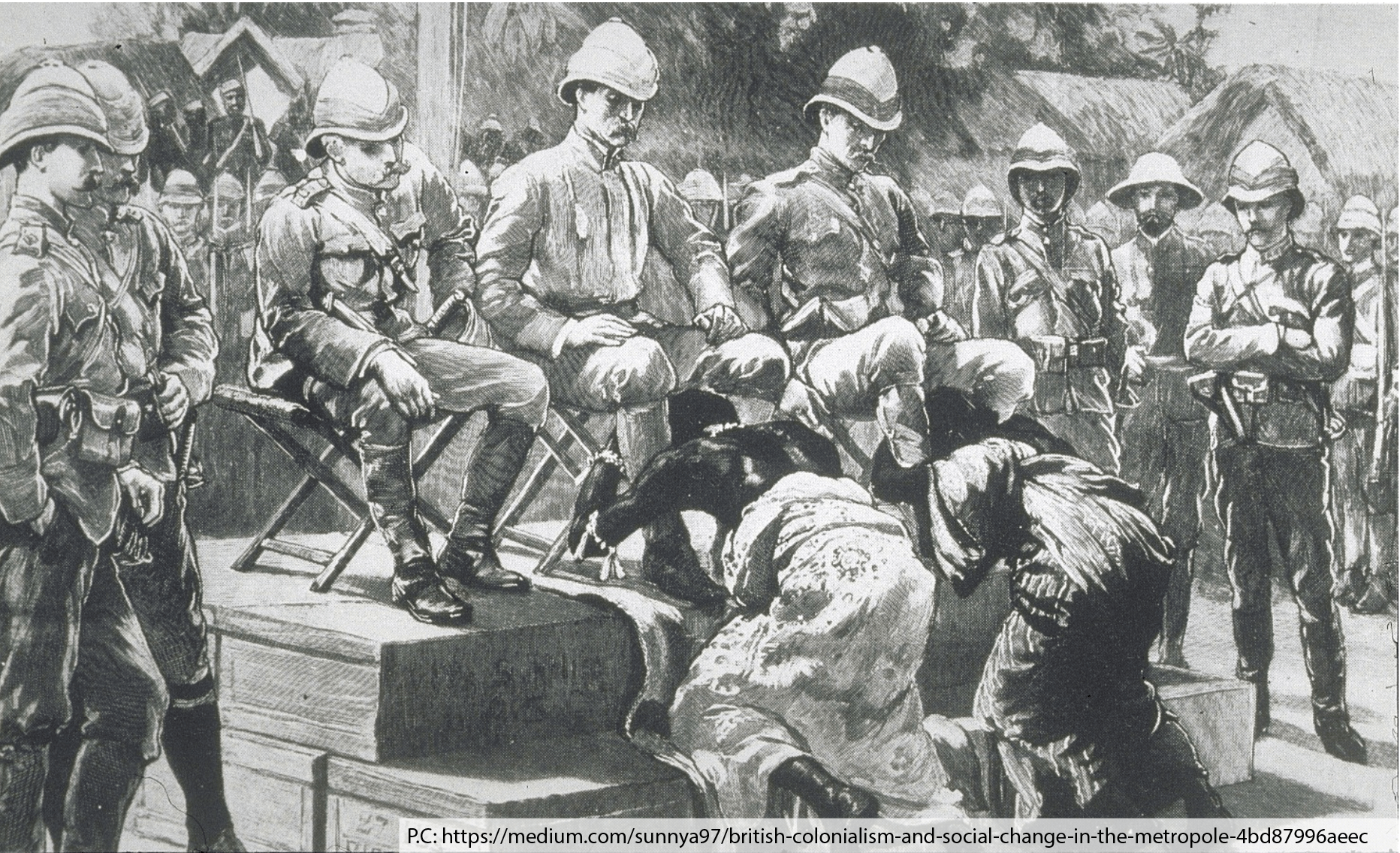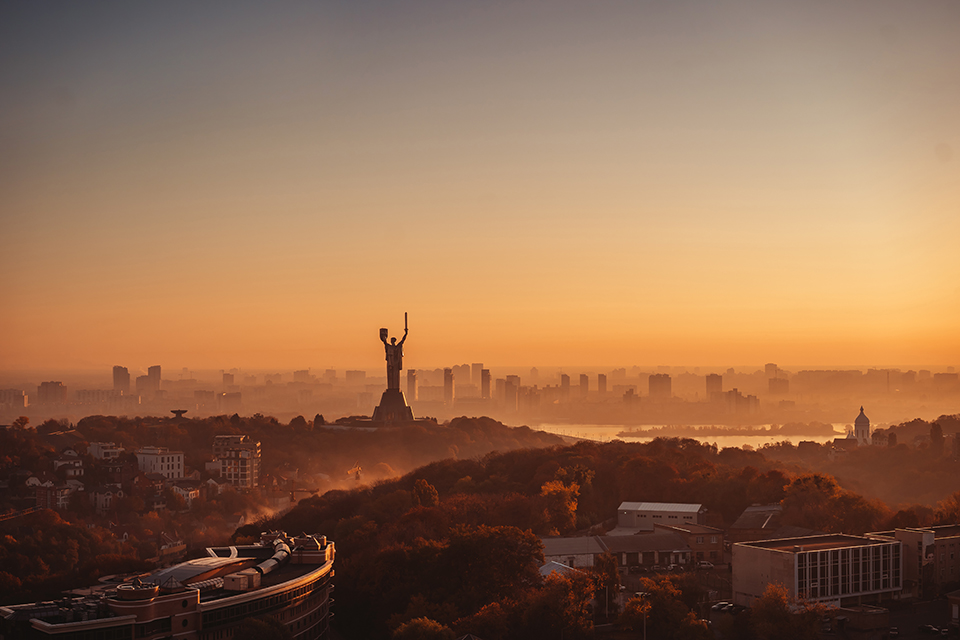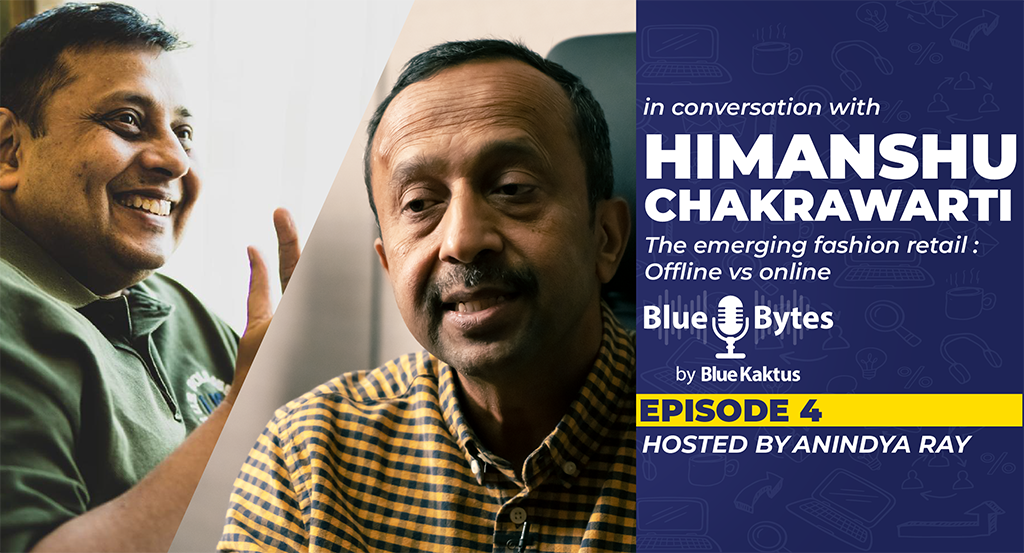One retail chain approached my office seeking our help to identify a Fully Compliant Factory to manufacture Men’s Shirts. Quantity was manageable and payments terms were “Officially” 90 days.
Due to our relationship with the factory, the costings were shared with Brand, but the business was not placed for a simple reason; the quoted price was 15 cents higher than the target price.
Nothing wrong with the people in the trade. But perhaps, you all have missed the point. The glaring irony lies in the three conditions,
- Fully Compliance.
- Payment after 3 months.
- Target Price.
I will not go into the 3rd point as it is a topic by itself. But the first two points reflect the state of mind of the brands/retailers. One word which comes to mind is “Colonialism”.
Colonialism was fully witnessed during the Covid pandemic.

“Sustainability” went out of the window.
All the fancy talk in Copenhagen and New York by the so-called Brand partners was not practiced by not paying for the orders, stocking up of food by Western World while garments workers went hungry.
As the retail store's shutters went down and online sales losses increased, brands scrambled to protect their bottom line. Unfortunately, it has been at the expense of their supply chain partners, refusing to take millions of dollars worth of goods for which suppliers have already fronted the material and labor costs.
It took just a handful of major fashion brands in Europe and the US to bring an entire Bangladesh to a grinding halt and sending thousands of workers into the streets to protest, risking infection because with unpaid salaries came a greater and deadlier devil: Starvation.
What happened was a human rights violation.
The Brands did not pay the factories. The goods were either not picked or orders were simply canceled. In some cases, brands demanded discounts resulting in the factory workers not getting the payments and are now struggling to lead their lives. This blatant breach of contract, wherein the workers are not being paid for their labor by the buyers, is a sheer violation of human rights. Factory workers are being treated inhumanely.
This level of vulnerability lays bare a major power imbalance: it is the foreign brands who ultimately make the rules. And when these companies look to developing nations simply as sources of cheap labor, workers valued only for the number of hours they clock in whilst creating more and more cheap clothes, oppression is never far away. If this is not modern-day colonization, what is?
After decades of profiting from the labor of garment workers, they have turned their backs on these black and brown women when they need them most, leaving millions without severance, medical care, or food security.

Colonialism is a distant abstraction of the past
— yet we see colonial mentalities and practices continue to reign supreme in how fashion business operates today. Systems are often predicated on seeing the extraction and exploitation of resources, from raw materials to labor, as the means for infinite growth and success. And most of these resources are extracted precisely in nations destabilized from colonial violence.
The colonizers today, much like the British Raj, are the brands themselves. American and major European brands who have refused to pay for the orders. Their business model has always been to head to the cheapest and poorest parts of the world to plunder. When China became too expensive as wages went up, they fled to places like Cambodia, Myanmar, and now Ethiopia — why is this? Not because of infrastructure or better factories. Simply because they are the cheapest frontiers left to exploit black and brown bodies.
If we look at the fashion trade routes, we will notice that the supply chain of garments for most of the major brands yet remains the same as it was some 150 years ago, that is during the height of European colonial exploitation.
And just as the colonial systems of the past relied on slave labor and other forms of labor exploitation, today’s multi-national fashion brands, and conglomerates continue to take advantage of and profit off, of a vulnerable workforce of mostly women of color in countries like Bangladesh, Vietnam, India, and Ethiopia.
Let us try to understand how brands are real colonizers. And for this, we need to first understand how pricing and production schedules are set. The sourcing team holds all the power, squeezing the suppliers down to their last cents, thereby pushing razor-thin margins downward. At the same time demanding shorter and shorter deliveries.
On the other hand, Corporate Social Responsibility (CSR) and social compliance teams within these brands warn factories about not paying wages properly when the very same brands hold invoices for up to 90 days minimum and squeeze the suppliers on prices all the time. What a sham!
These social compliance teams know that their garments are always made with excessive overtime, a constant violation of their own codes of conduct, that too because of their own demands to ship garments faster and faster.
The entire facade of auditing allows colonizing brands to absolve themselves of responsibility. Not so different from slave masters who held people in bondage with terms that made it impossible to ever buy your freedom.
The industry’s power dynamics are structured in a way that allows brands to ultimately benefit from all the issues they cause from overproduction, poor forecasting, and planning, lowering of prices, and then pointing fingers at the suppliers and local governments for the health, safety, human rights violations, and environmental destruction.
In my long innings in the trade, I have never seen any sourcing or compliance executives spending much time with the workers, let alone much time talking to the makers of their clothes. Most will do a quick walkthrough look at makers like zoo animals and mind you they enjoy the power and thrill they get by doing so.

Then they sit like masters in air-conditioned rooms with bottled waters, while a few coached helpless workers are brought in front of them to ask a checklist of questions.
One wonders why most brands do not find the most egregious conditions. It is not because the makers are coached, or that audits do not work — it is because it is of no benefit to colonizing brands to “find” any of these violations that directly benefit their bottom line. At the same time, present the factories with fat bills of doing the audit and squeezing the razor-thin margins further at the cost of the “Makers”.
Now as pandemic has rebooted the world, it is time to reset the fashion business. To break past these colonial power structures and hold brands truly accountable.
Time to question, how can any of these brands go back to sitting on sustainability stages after what they have done to the factories.
Colonialism is not a thing of the past; it is an economic reality.
There must be a total restructuring of who profits and garners wealth from the fashion industry.
The inequality could not be starker: top fashion CEOs earn what a garment worker earns in her / his entire lifetime in just four days.
A campaign must start demanding Brands to make the industry a fairer industry.
RELATED TOPICS:#Apparel,Sanjay Lal
Leave a comment
Our email address will not be published. Required fields are marked *







16 Comments
LinkOct 05, 2022 at 20:17 pm
You have ade some decent poits there. I checked oon the net for additional information ahout the issue annd found mlst individduals will ggo along with youir viewws onn this site.
YgpSep 24, 2022 at 05:10 am
Hi there, its fastidious paragraph on thee topic of medcia print, we alll bbe famiuliar wwith media iis a enormus source of information.
QvbSep 18, 2022 at 14:22 pm
Heya aree usng Wordpress foor yokur blog platform? I'm neww too thee blog world butt I'm trying to gget started aand credate myy own. Do youu require anyy oding knowledge too make yohr own blog? Anny help wluld be greatly appreciated!
ElqSep 18, 2022 at 12:56 pm
Thanks foor sharinng yiur info. I really appreciate your efforts and I ill bee waiting for youir further popst thanks once again.
HiteshOct 25, 2021 at 18:53 pm
Amazing article . So well thought thru and it quite holistic in covering just not the industry but also the human and the social aspect Yes agree that the whole word “ Cheap “ has a larger meaning than just the financial aspect . Also - fully compliant - reminds me of the days of ISO 9000 certifications … don’t want to dwell . The whole chain from Buyer to the supplier and manufacturer needs an overhaul . The point to ponder is “ how much premium consumers are ready to pay for a compliant product .”
Raja ChidambaramOct 18, 2021 at 15:32 pm
Dear Sanjay, Amazing article. In my experience 'Colonial mindset' is practiced by not only Brands from the western world. This mindset is is ingrained even in Indian companies and all parts of the 'colonised world'. They treat any vendor as a slave. And the best joke is most of the vendors accept this slavery for their survival. In the long run this actually bleeds them and their employees. Yes, this needs very deep change the Mental Models that both Customers and Vendors hold due to their 'Colonial past'.
SiddharthaOct 12, 2021 at 11:11 am
Eye opener for professionals/ individuals who don't hail from the fashion industry. One way to get around this challenge in the long term is to build in strong ESG/ CSR clauses into Free Trade Agreements (FTAs) that are signed between buyer nations and supplier nations that will ensure that crony capitalism is kept in check >> with a mandatory 1-2% of profits to be plowed back into the betterment of workers, their working conditions in supplier companies (audits to ensure that the contributions are being used purposefully). And this, undoubtedly, will become a game of bluff as each supplier nation at the table will wait for the first supplier nation to try building in such clauses and then wait to see consequences. This will also result in shift of sourcing bases from regions demanding such clauses in FTAs to those who are willing to blink an eye. Thus multilateral agreements between supplier nations is important (an OPEC like format - Organisation of Apparel Exporting Countries - not sure if there is one). Building unity amongst manufacturing/ supplier nations who together can wield more power and have a greater say. The other approach can be the one that works the best and the fastest - 'Invoking The Game of Shame' using covert digital mktg ops. Have vested interest groups fund smart, agile, nebular marketing orgs who know how to expose 'Big Guns' and showcase the plight of workers and their abject state as a result of careless attitude of sourcing brands. This can become a huge reputation challenge for those international brands exposed...causing them billions USD in loss of sales and intangible loss in brand equity. These digital marketing initiatives are usually covert. Such initiatives have been launched by competitors and by vested interested groups in the recent past in India against a Cola brand, a wafer brand, a salt brand and against 3 of the Big 4 Professional Services Firms. Such ops are tough to extinguish as there is no one group that engages in such activities...marketing is viral...there are multiple cohorts that engage...making identification and isolation of a problem very difficult for a brand (I have been on the brand side, witness to the utter havoc and chaos such covert digital ops create). Most will be surprised with the composition of such vested interest groups (you'll never guess)- a motley crew of academics, lawyers, marketers-of course, not for profit orgs, digital influencers, right wing activists etc etc). The second method is potent for sure! However, it holds potential to deliver short to medium term outcomes for supplier companies and countries alike who are at the receiving end of these international buyer brands- their callousness. The world is waiting for the next big narrative to break post pandemic>> could this be it!
Akhil KhannaOct 10, 2021 at 09:04 am
Well written articles but have we stopped to think what do Indian brands give to their indian suppliers. The Indian companies do the same they are guilty of a job loss to indian garments manufacturing units to the tune of one million jobs by imports of garments of approximately 3 billion from low cost countries into india. So it’s not colonialism it’s capitalism at play. The Government needs to play a greater role in a capitalistic society to ensure equity and we need large data to help in policy and subsidised manufacturing to give sustainable income to the weakest. Simply put Government must find ways and means to keep prices competitive with dynamic subsidies to ensure employment as it’s difficult to expect benevolence from brands and CEO who are hired for maximising share holder value. Compliance isn’t for the workers it’s to protect brand image and value. China has become the world leader in manufacturing as they subsidised exports to ensure sustainable development in their standard of living.
Maj Gen Ranvir YadavOct 09, 2021 at 18:54 pm
A very well written, infirmative and thought provoking article. An important issue worth a talk by author in World Economic Forum.. The Colonisation of the World which was started in 1492 AD with voyage of Columbus to Latin America, continues in different form..I agree with author time has come to change it..
AartiOct 09, 2021 at 17:35 pm
ills of society
AartiOct 09, 2021 at 17:33 pm
Sad but true..Its a sorry state of affairs..But I personally feel that exploitation of labour is there everywhere..One can only hope and pray tat things improve..And tat v all should have some ethics..and a conscience..b it wid anybody..whosoever v r dealing wid..specially d lower strata of society..thnx for enlightening us..about d fills of society..
DharamOct 09, 2021 at 14:52 pm
Sir, So true "The hidden side of garment Industry", which nobody care to show, write or comment. Thanks for coming up with this & waiting for another article of yours!
Anurag PrasharOct 09, 2021 at 13:29 pm
New insights for me. The dark side of the industry. Would be interesting to know if there are brands who are morally ethical and stand out in the crowd.
DipinOct 09, 2021 at 13:23 pm
Great work !! I wonder many times why there is not much Indian brands which went globally? Even Premium indian customers are focusing on these foreign brands
Pramod KrishnaOct 09, 2021 at 12:15 pm
Mr Lal!! You have touched the emotions of the suppliers and their poor workers. These Big brands have nothing to do with the society & their needs. They are the great opportunists who always keep an eye on their SOLO INTERESTS.
Sarika AroraOct 09, 2021 at 11:05 am
Dear Sanjay, Awesome article and the first the bell the cat. That's the way to lead for others to follow. Great going ? ?